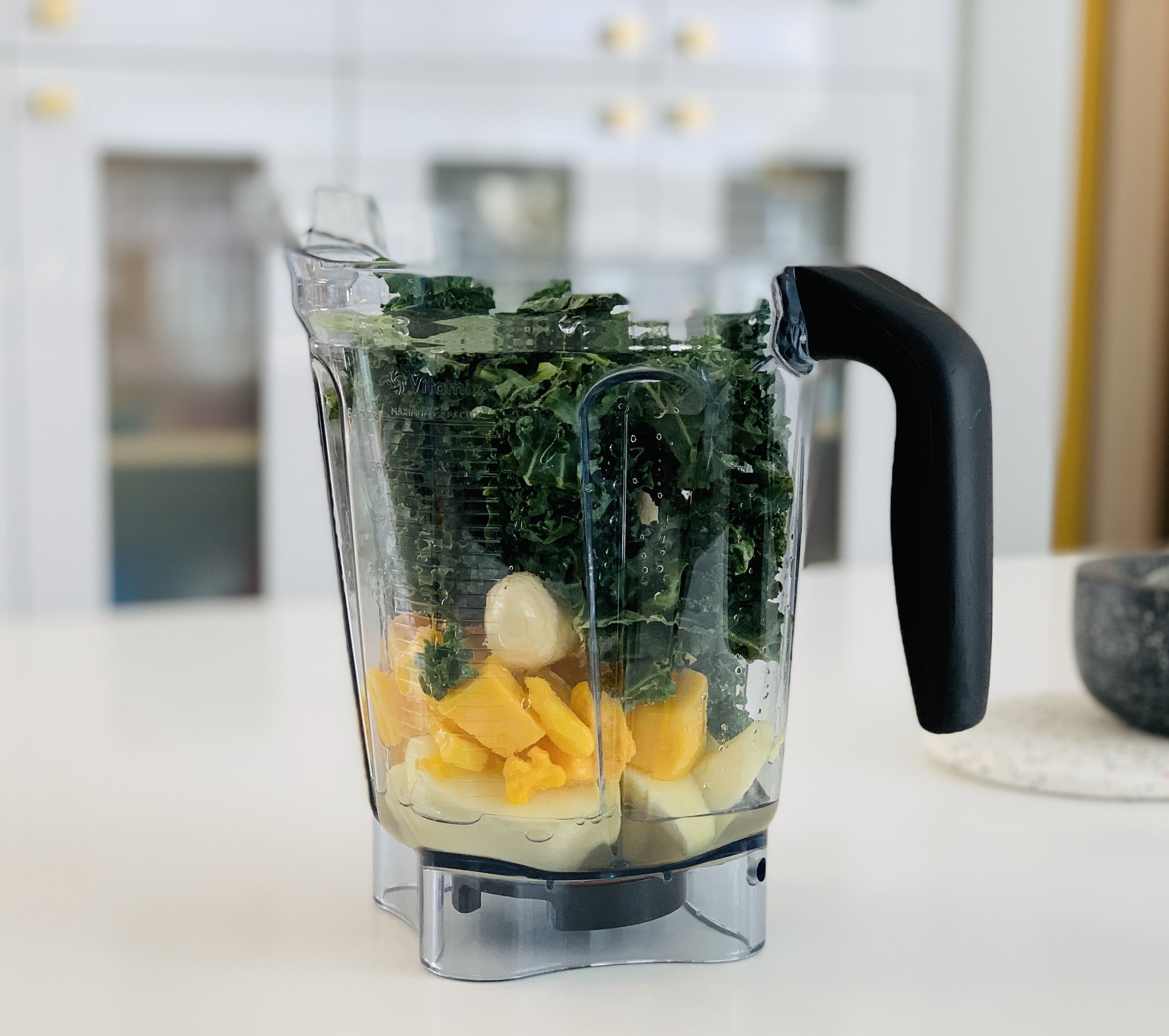Time saved or money wasted? The West’s ongoing love affair with kitchen appliances.
"Unsure how long to cook 50g of popcorn for, or how long to heat up a cup of coffee? Take the guesswork away with the intelligent auto cook function, from the VY-C900M Digital 25L 900W Solo Microwave Oven".
"There really is nothing like the mouth-wateringly delicious smell of fresh bread to make a house feel like a home. With the Russell Hobbs 23620 Fast Bake Breadmaker you can enjoy fresh, homemade bread quicker than ever before".
"Create a range of tasty treats from the comfort of your own home with this stylish 1200W stand mixer from Cooks Professional. Ideal for preparing fluffy meringues, bread dough, cake mix, and more".
Do these messages sound familiar? They should; with a current estimated value of $253.4 billion and a projected value of $377.70 billion by 2027, the kitchen appliance market is booming. Perpetuated by a slew of quippy advertising so commonplace, it is a small miracle that our dreams are not interrupted every thirty minutes by the promise of a pan providing "the ultimate cooking experience", complete with mind-numbing jingle.
As innocent as they seem, read between the lines and you will quickly see that this advertising – as is so prevalent in the modern day – relies on at least one of the following covert messages. One, that their usage is absolutely necessary to achieve the end product - notwithstanding the fact that products such as bread and yoghurt have been made appliance free for millennia - or two, that you as an individual are incapable of making the product without said kitchen appliance. Despite the constant depreciation being extremely detrimental for one’s self-worth, these messages have proved to be extremely effective, how else would we be living in a society that labels ₤20 egg poachers "an essential"? The effectiveness of this marketing strategy is in part due to the fact that it draws on that lifeblood of capitalism, instant gratification. Not only do these appliance guarantee
the dopamine high associated with purchasing - which we are all hopelessly addicted to - but they also promise saving the owner "time and effort" in the future, aiding a spent populace in its protection of these two perpetually exhausted commodities.
Lack of time is the number one, given answer when current adults justify spending approximately half the amount of time cooking as the previous generation did. I would suggest that although this is the widely accepted narrative, further examination may reveal that it is not a lack of time that is to be held accountable, rather a change in prioritisation, which has seen cooking - and cooking from scratch in particular – go on the backburner. In short, cooking has come to be seen as a chore; one that should be completed as quickly and dispassionately as possible, in order to free up time for various work and leisure related activities.
That being said, this is a Western-centric view and I mean not to belittle the life changing impacts domestic technologies have brought to populations across the globe, especially in developing nations. Appliances such as LPG stoves have been seen to produce less air pollutants and save the women and children of these populations hours in fuel sourcing and cleaning, consequently freeing their time for other activities including education, formal work, and personal growth. Many view this newfound temporal freedom as an important first step in dismantling the global patriarchy, as it increases the likelihood that women will achieve a greater level of education and thus facilitate their economic independence.
Additionally, the West’s contemporary ‘dining out’ experience is also largely indebted to kitchen appliances; not only do we have them to thank for the mind boggling science experiments now commonly found on the World’s tasting menus, but also for your average restaurants ability to process hundreds of orders a night. In these instances, the culture altering power of kitchen appliances cannot be denied.
However, do we truly believe that in the Western world buying a new bread maker, juicer or kitchen aid is going to transform our lives? Will we learn a language, get a promotion, or spend more time
with our family once freed from the occasional, torturous session of dough kneading? Probably not. Will we start producing seawater flavoured espuma or a "perfectly" sous vide filet mignon for our Saturday night dinner party? Almost definitely not. We are much more likely to invest time gained via a mechanisation of the kitchen, into our phones, televisions and other time-gobbling devices; we are now in the peculiar position whereby the average Brit spends more time watching people cook on TV then actually doing it themselves.
Being truly present in the moment is a rare thing in our contemporary world, so full of distractions as it is. However, the process of making, of creating purely for the sake of enjoyment, roots you to it like little else. If your time would otherwise be spent on Facebook then why not pick up some flour, a handful of eggs and embark on your own culinary adventure? And if possible, ask your family or friends to join you on the ride. On a dark, rainy evening I did. Conversation flowed as freely as wine whilst music echoed gently in the background. Myself and two of those closest to me, locked together in the peerless comradery of shared labour, forged towards a bowl of freshly made pasta, whilst simultaneously creating a memory which I am sure will endure for a lifetime. Phones long forgotten, we partook in an age-old ritual, with the goal of nourishing our body and mind in a manner markedly different from chucking some dried fusilli in a pot. It tasted rich, authentic, wholesome, both the food and the experience.
I am aware that this immersive option is not possible for everyone all the time - there is still a rightful and noble place for the 20 minute dinner – yet, I am adamant that it is possible for nearly all, some of the time, and I insist that these opportunities must be capitalised on. It is a matter of health: real social time has been proved undoubtedly important for longevity, as brilliantly extrapolated by Dan Buettner in his book Blue Zones, amongst others. Furthermore, a greater amount of time spent on home food preparation is also associated with indicators of higher diet quality, including significantly more frequent intake of vegetables, salads, fruits, and fruit juices, according to studies published in the American Journal of Preventive Medicine.
Taking the fear of cooking and replacing it with joy, trusting your hands above a machine and using all your senses as you learn in a kitchen covered in flour, dough and an assortment of spoons is addictive. Who knows where you will end up, it is only a short jump from sauce making to breadmaking; from breadmaking to fermentation. Cooking by hand is an addiction of the most wholesome kind, one which welcomes mistakes as part of the process and will fill your home with sights, smells and excitement, not the repetitive whirring of a listless machine.
The simple fact is that for decades we haven’t needed to do many of these things by hand, and slowly but surely, ‘don’t need to’ has become ‘won’t’. But herein lies the beauty of it, do something for the sake of it, for the love of it and I promise that the experience will pay you back a thousand times over.
-JACOB SMITH
ABOUT THE AUTHOR
Jacob Smith is a writer whose focus centres on the ever-evolving relationship between peoples. He has a long-held affinity for food and cooking, a fact chiefly attributable to his mother, Liz. Outside of writing, Jacob is the Social media and Communications Officer for Incomindios UK, the British branch of a Swiss-based indigenous rights organisation and is currently concluding his MA Conflict, Security & Development at the University of Exeter.
Find him on Twitter: @JacobSm10470232





